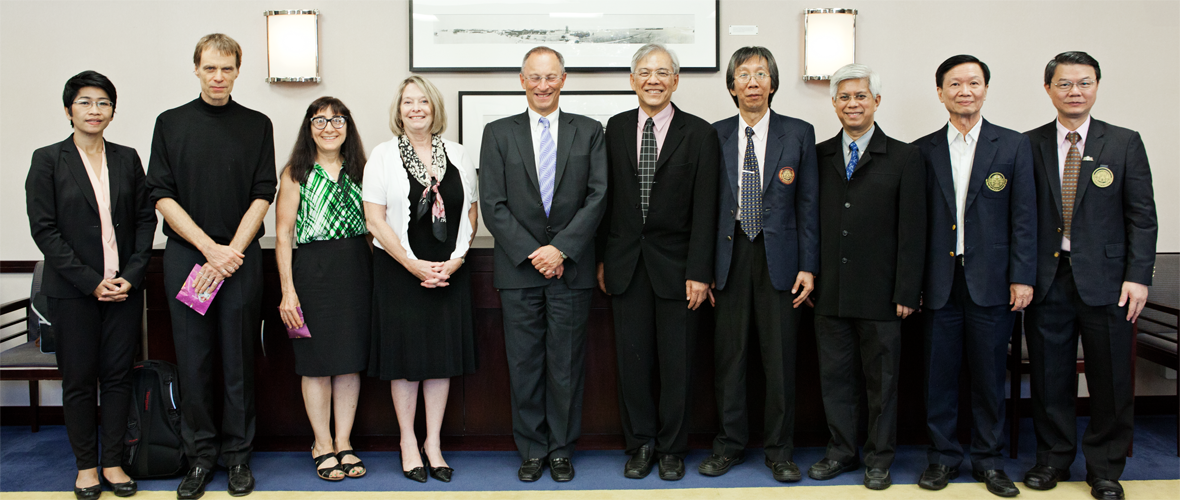On September 16 CLTC and UC Davis welcomed President Sakarindr Bhumiratana and five other academic leaders from King Mongkut's University of Technology Thonburi (KMUTT), Thailand, for a meeting with UC Davis Provost and Executive Vice Chancellor Ralph Hexter and other senior UC Davis representatives. During the visit, the two universities signed a memo of understanding supporting collaboration between their respective lighting research centers, both of which are dedicated to improving the sustainability and energy efficiency of lighting.
President Bhumiratana and the other KMUTT professors received tours of CLTC and campus lighting installations that are part of UC Davis’s Strategic Lighting Initiative. The group also toured the UC Davis West Village. The technologies and lighting design principles used in these projects will inform ongoing relighting efforts at KMUTT.
Over the last five years, the Department of Design at UC Davis, and KMUTT have developed a strong partnership, co-teaching lighting design classes at KMUTT and sharing information on adaptive lighting demonstrations. KMUTT has funded the initial development of a lighting center in Bangkok and is currently collaborating with Thailand’s Metropolitan Electricity Authority on a series of adaptive lighting demonstrations for area and street lighting applications.
Last year UC Davis and KMUTT collaborated with the Asia-Pacific Economic Cooperation (APEC) to host a symposium for universities and institutions across Asia. The event featured workshops that supported efforts in Singapore, Thailand, China, and Hong Kong to establish lighting design, education and demonstration centers like CLTC.
The APEC workshop also initiated strong collaborations between Tongji University in Shanghai, China, the Singapore Green Building Council (SGBC), KMUTT’s School of Architecture and Design, and Hong Kong Polytechnic University, with a focus on lighting best practices.
The Department of Design at UC Davis is collaborating with Department of Architecture, KMUTT and Tongji University on a new proposal to APEC that would support a second round of workshops focused on best practices for sustainable building design.

